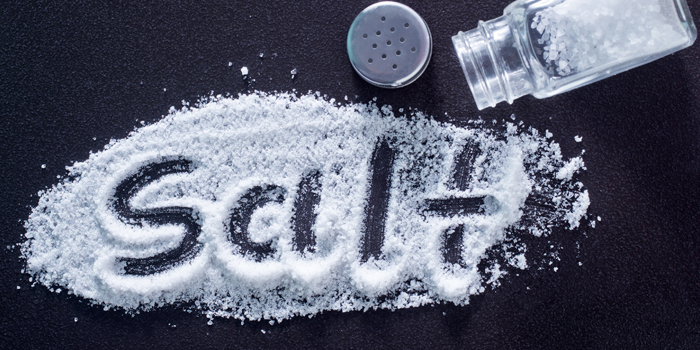Does Salt Affect Weight Loss? How Much is Too Much?
How does salt affect weight loss? Does it help or hinder your progress? Before you reach for the shaker, it’s important to understand that there are different types of salt and what kind you eat can have a dramatic effect on your body. Plus, you might be eating more than you think! This blog post will answer your questions about the effects of salt on weight loss, including how much salt you should consume and what kinds of salt are best to use when trying to lose weight and keep it off long-term.
Things you should know about salt
1.Salt makes your body hold onto water.
2.Too much salt can make you bloated and puffy.
3.Salt can make you feel thirstier, so you may end up drinking more water (and retaining even more water).
4.Salt can make you eat more. Studies have shown that high-salt diets increase appetite and calorie intake.
5.On the other hand, a little bit of salt can actually help with weight loss by making you feel fuller after eating and preventing cravings later on.
6.So how much salt should you be eating if you’re trying to lose weight? The Institute of Medicine recommends restricting daily sodium intake to less than 2,300 milligrams for people who are 51 or older and those of any age who are African American or have hypertension, diabetes or chronic kidney disease. Other adults should limit their sodium intake to less than 1,500 milligrams per day.
The effect of sodium on blood pressure
Salt has been shown to have an effect on blood pressure. In a study done on rats, it was found that a high salt diet increased blood pressure, while a low salt diet decreased it. The mechanism by which this occurs is not fully understood, but it is thought that salt affects the way the body handles fluid. When there is too much salt in the diet, the body retains more water, which leads to an increase in blood pressure. While a small amount of salt is necessary for the body to function properly, too much can have adverse effects. Studies show that people who eat a high-salt diet are at higher risk for hypertension and cardiovascular disease. Reducing sodium intake may be one strategy to manage weight and prevent obesity-related health problems such as diabetes and heart disease.
Can Low Sodium Diet Help with Weight Loss?
Some people now seem to think that salt is a bad thing. Because the body needs salt to function, many people believe that eating less salt can help them lose weight. However, the amount of salt you need depends on many factors, including your age, health, and activity level. While cutting back on salt may help some people lose weight, it’s not a magic bullet for weight loss. In fact, if you reduce your salt intake too much, it can actually lead to weight gain. One study found that salt restriction leads to increased levels of ghrelin, a hormone associated with hunger and feelings of fullness. For example, someone who eats a low-salt diet will start feeling hungry more often and overeat as they try to satisfy their cravings. And this overeating can easily cause weight gain due to an increase in calories consumed without an increase in calories burned. If you want to reduce your calorie intake, limiting salt should be just one part of a larger strategy involving healthy eating habits and physical activity.
Symptoms of low sodium diet
When you consume too little salt, you may experience any or all of the following symptoms: headaches, muscle cramps, nausea, vomiting, lightheadedness, and fatigue. You may also have trouble breathing and an irregular heartbeat. If you experience these symptoms, it’s important to increase your sodium intake immediately. One way to do this is by adding a teaspoon of salt to every quart (liter) of water you drink for 24 hours. If you need more assistance, talk with your doctor about how much sodium you should be consuming per day based on age and weight.
The Recommended Daily Allowance (RDA)
The recommended daily allowance for sodium is 2,300 milligrams (mg), but the American Heart Association (AHA) recommends an even lower limit of 1,500 mg per day for most adults, especially people with high blood pressure. People who are trying to lose weight may want to reduce their intake of salt because it can cause water retention and bloating. However, there is no scientific evidence to show that cutting out salt will help you lose weight. In fact, you may actually need more salt than the RDA to keep your body functioning properly. too much salt can cause dehydration, which can lead to weight loss. So how much salt should you eat if you’re trying to lose weight? The answer depends on a number of factors, including your health and activity level.
Signs that your low sodium diet isn’t working
If you’re eating a low sodium diet and not losing weight, it might not be working. Here are some signs that your low sodium diet isn’t working:
1. You consume too many processed foods, too frequently.
2. You don’t consume enough fruits and vegetables.
3. You’re not drinking enough water.
4. You’re not exercising regularly.
5. You’re eating too many high-sodium foods.
6. You’re not watching your portion sizes.
7. You’re snacking too much throughout the day .
8. You’re not sticking to a set schedule of meal times.
9. Your body’s been under more stress than usual (e.g., work deadlines, relationship issues).
10. There’s an underlying medical condition causing your weight gain such as hypothyroidism or diabetes
Tips to minimize the risks of a low sodium diet
A low sodium diet can help with weight loss, but it’s important to be aware of the risks. Too little salt can lead to dehydration, headaches, and fatigue. It’s also important to make sure you’re getting enough potassium, as a lack of potassium can cause muscle cramps. Here are some tips to minimize the risks of a low sodium diet:
1. Make sure you drink plenty of fluids, especially water.
2. Avoid processed foods, which are often high in sodium.
3. Eat more fresh fruits and vegetables.
4. Season your food with herbs and spices instead of salt.
5. Avoid adding salt to cooking water.
6. Salt your food less when cooking at home.
Ways to reduce sodium in your diet
1. Cook at home more often. When salt is less soluble, you can also control how much goes into your food.
2. When eating out, avoid processed foods and those that are high in sodium.
3. Read nutrition labels carefully and choose products that are low in sodium.
4. Season your food with herbs and spices instead of salt.
5. Drink plenty of water to help flush excess sodium from your system.
6. Avoid adding salt to cooking water or at the table.
7. Choose fresh or frozen fruits and vegetables over canned varieties.
8. Be aware of hidden sources of sodium such as salad dressings, fast food condiments, pizza crusts, frozen dinners and deli meats.
9. Watch for seasoning blends that contain salt and read labels to see how much they contain.
10. Talk to your doctor about whether reducing sodium intake might be right for you and ask if he/she has any other recommendations for reducing dietary salt intake.




